
The Hotel Transylvania franchise has delighted audiences since its inception in 2012, offering a unique blend of humor, heartwarming moments, and a cast of lovable monsters. In its third installment, Hotel Transylvania 3: Summer Vacation, the series takes a refreshing turn by moving the story out of the titular hotel and onto the high seas. Directed by Genndy Tartakovsky, this animated adventure provides plenty of laughs, colorful visuals, and family-friendly fun while continuing the story of Dracula and his monstrous crew. This article explores the plot, characters, themes, and critical reception of Hotel Transylvania 3: Summer Vacation and examines why it resonates with audiences of all ages.
The Plot: Monsters on Vacation
Hotel Transylvania 3 opens with Dracula (voiced by Adam Sandler) feeling burnt out from managing his beloved hotel. His daughter, Mavis (Selena Gomez), notices her father’s exhaustion and decides to surprise him with a family vacation aboard a luxury monster cruise. Eager for a break, Dracula reluctantly agrees, joining Mavis, his grandson Dennis, and the hotel’s usual gang of monsters, including Frankenstein, Wayne the werewolf, Griffin the invisible man, and Murray the mummy. The ship, captained by the enigmatic Ericka (Kathryn Hahn), offers the monsters an opportunity to relax and have fun away from the human world.
However, Dracula’s vacation takes an unexpected turn when he falls head over heels for Ericka, experiencing what monsters call “zing”—a love-at-first-sight phenomenon. Unbeknownst to Dracula, Ericka harbors a secret. She is the great-granddaughter of Abraham Van Helsing, Dracula’s age-old nemesis, and has been tasked with eliminating him. As Dracula courts Ericka, she wrestles with her mission and the unexpected feelings she develops for the vampire. The story builds toward a climactic showdown involving an ancient weapon, Van Helsing’s plans for revenge, and a musical battle featuring a sea monster. Through it all, the film remains rooted in themes of family, acceptance, and the power of love.
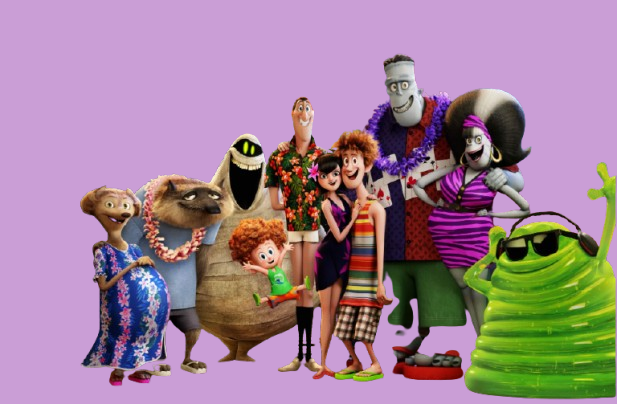
Characters: Familiar Faces and New Additions
One of the strengths of the Hotel Transylvania franchise is its ensemble cast, which brings both humor and heart to the story.
- Dracula
Adam Sandler’s Dracula continues to be the heart of the series. In Hotel Transylvania 3, we see a softer, more vulnerable side of the character as he navigates love and family dynamics. His interactions with Ericka provide a mix of romantic comedy and slapstick humor. - Mavis
As Dracula’s loving and protective daughter, Mavis plays a pivotal role in the story. Her desire to give her father a break drives the plot, and her efforts to balance family responsibilities with fun make her a relatable character for parents and children alike. - Ericka Van Helsing
Kathryn Hahn’s Ericka is a standout addition to the cast. Her initial mission to destroy Dracula adds tension to the story, but her gradual transformation into a more empathetic character is handled with charm. Her relationship with Dracula evolves into one of the film’s central arcs. - The Monster Gang
The supporting cast of monsters—Frankenstein (Kevin James), Wayne (Steve Buscemi), Murray (Keegan-Michael Key), and Griffin (David Spade)—bring their signature comedic energy to the film. Their antics aboard the cruise ship provide some of the movie’s funniest moments. - Van Helsing
Jim Gaffigan voices Abraham Van Helsing, the eccentric and bumbling villain. While his character is more comical than menacing, his presence ties into the franchise’s ongoing theme of bridging divides between humans and monsters.

Themes: Love, Family, and Acceptance
At its core, Hotel Transylvania 3 is about love and acceptance. The concept of “zinging” reinforces the idea that love can transcend differences, whether they are between humans and monsters or individuals from opposing backgrounds. Dracula’s romance with Ericka demonstrates how preconceived notions can be challenged and overcome through understanding and connection.
The film also emphasizes the importance of family. Mavis’ concern for her father’s well-being and Dracula’s efforts to bond with his family underscore the centrality of familial relationships. The dynamic between Ericka and Van Helsing further explores the generational impact of prejudice and the possibility of breaking free from inherited biases. Additionally, the film subtly addresses the need for self-care and balance. Dracula’s initial burnout serves as a reminder that even the most dedicated caregivers need time to recharge and prioritize their own happiness.
- Visuals and Animation Hotel Transylvania 3 showcases the franchise’s signature animation style, characterized by exaggerated movements, vibrant colors, and imaginative designs. The transition from the hotel setting to a cruise ship allows for a fresh visual palette, with scenes set against tropical backdrops, underwater environments, and a bustling ship filled with monster-specific amenities. The film’s animation shines during its action sequences, particularly the climactic musical showdown featuring a giant sea monster. These scenes highlight the creativity of the animators and their ability to merge humor with spectacle.
Humor and Appeal
The humor in Hotel Transylvania 3 is a mix of slapstick, witty dialogue, and situational comedy, making it accessible to both children and adults. The film’s use of modern references and playful jabs at monster tropes keeps the tone lighthearted and entertaining. While the humor is aimed primarily at younger audiences, there are plenty of jokes and cultural nods that resonate with older viewers. The balance between kid-friendly gags and subtle adult humor has been a hallmark of the franchise, contributing to its broad appeal.

Reception and Legacy
Hotel Transylvania 3: Summer Vacation was a box office success, grossing over $528 million worldwide. Critics praised its humor, animation, and family-friendly message, though some noted that its plot was more straightforward compared to its predecessors. Fans of the series appreciated the film’s focus on Dracula’s character development and the introduction of Ericka as a compelling new character. The movie’s success solidified Hotel Transylvania as one of Sony Pictures Animation’s most beloved franchises.
Why It Resonates
- Relatable Themes
The film’s exploration of family dynamics, love, and acceptance strikes a chord with audiences of all ages. Its message about overcoming prejudice and embracing differences is particularly relevant in today’s world. - Memorable Characters
The lovable cast of monsters, brought to life by talented voice actors, ensures that viewers remain invested in their stories. - Universal Humor
The humor in Hotel Transylvania 3 transcends age barriers, making it an enjoyable experience for families to watch together. - Vibrant Animation
The visually stunning animation and imaginative world-building create an engaging and immersive viewing experience.
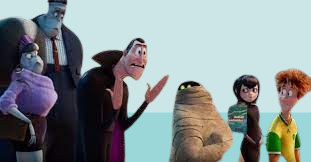
Conclusion
Hotel Transylvania 3: Summer Vacation is more than just another sequel—it’s a celebration of the franchise’s ability to combine humor, heart, and creativity. By taking its characters on a new adventure, the film breathes fresh life into the series while staying true to its core themes. With its vibrant visuals, laugh-out-loud moments, and touching message about the power of love and family, Hotel Transylvania 3 is a must-watch for fans of animated films. Whether you’re a longtime follower of the series or a newcomer, this spooky and fun-filled journey is sure to leave you with a smile.


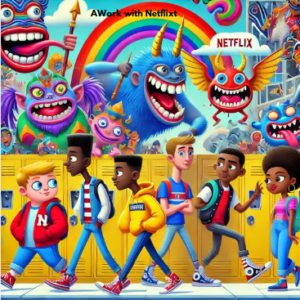

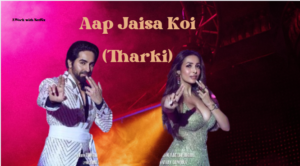
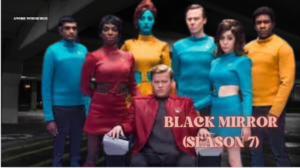

4 thoughts on “Hotel Transylvania 3: A Spooky and Fun-Filled Journey”